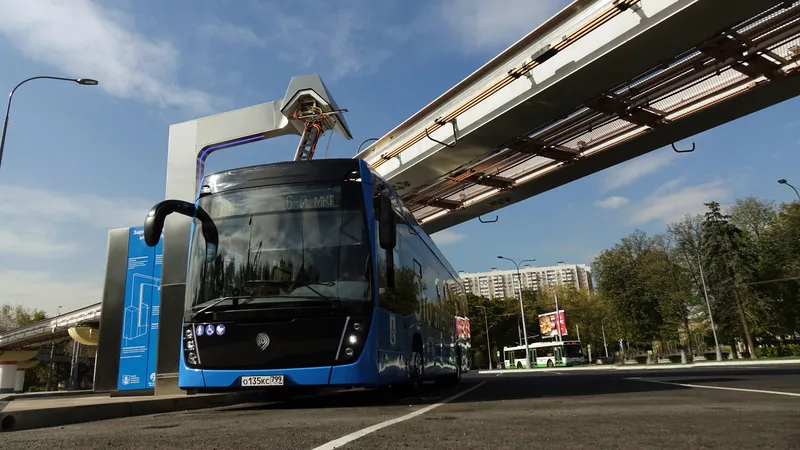The project will use OppCharge for ‘opportunity charging’, where buses are charged while they wait at bus stops at the end of the line equipped with fast-charging infrastructure. The buses will connect automatically to ABB’s HVC 300P chargers, which feature an overhead charging mast that charges via the buses’ on-board pantographs. An advantage is that the HVC 300P units are compatible with the OppCharge interface, so will be compatible with other brands and models of electric buses that use opportunity charging.
Charging will take only three to six minutes, eliminating the need to wait for long charging periods. The technology is the latest that Transdev Blazefield has introduced to reduce emissions and improve other aspects of bus travel. As well as enabling zero emission public transport, opportunity charging allows the size of batteries on board the electric buses to be reduced, reducing the overall weight of the buses and improving the energy efficiency of the bus network.
ABB fast charging technology to be implemented by UK bus company
Electric charging technology specialist ABB has won a contract to supply three HVC 300P electric bus charging stations for a fleet of Volvo electric buses that will be operated in Harrogate, UK by Transdev Blazefield from 2018. ABB will also supply an electricity substation for installation at a bus station serving the town. The project will use OppCharge for ‘opportunity charging’, where buses are charged while they wait at bus stops at the end of the line equipped with fast-charging infrastructure. The bu
April 25, 2017
Read time: 2 mins
Electric charging technology specialist 4540 ABB has won a contract to supply three HVC 300P electric bus charging stations for a fleet of 609 Volvo electric buses that will be operated in Harrogate, UK by 8574 Transdev Blazefield from 2018. ABB will also supply an electricity substation for installation at a bus station serving the town.








